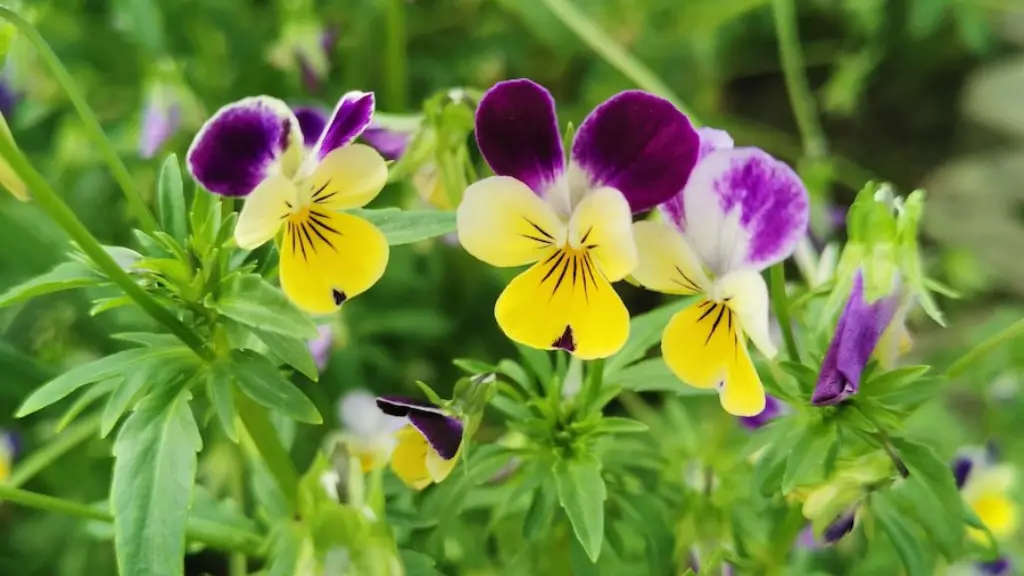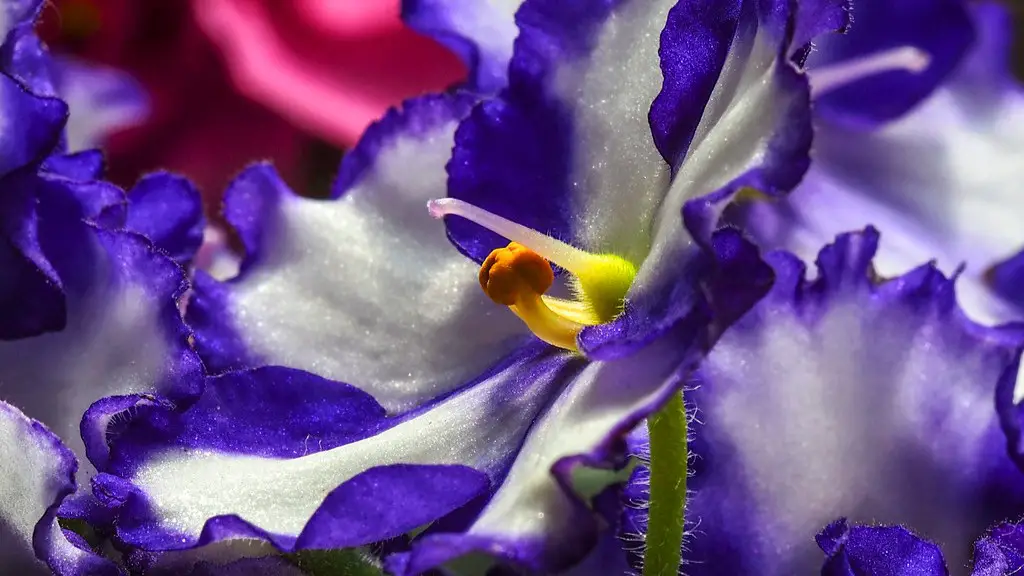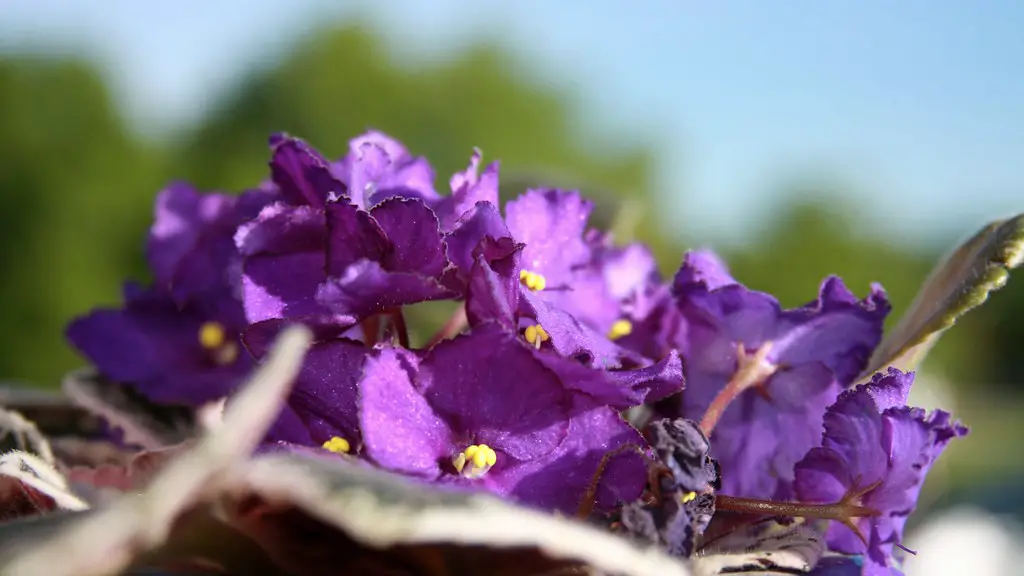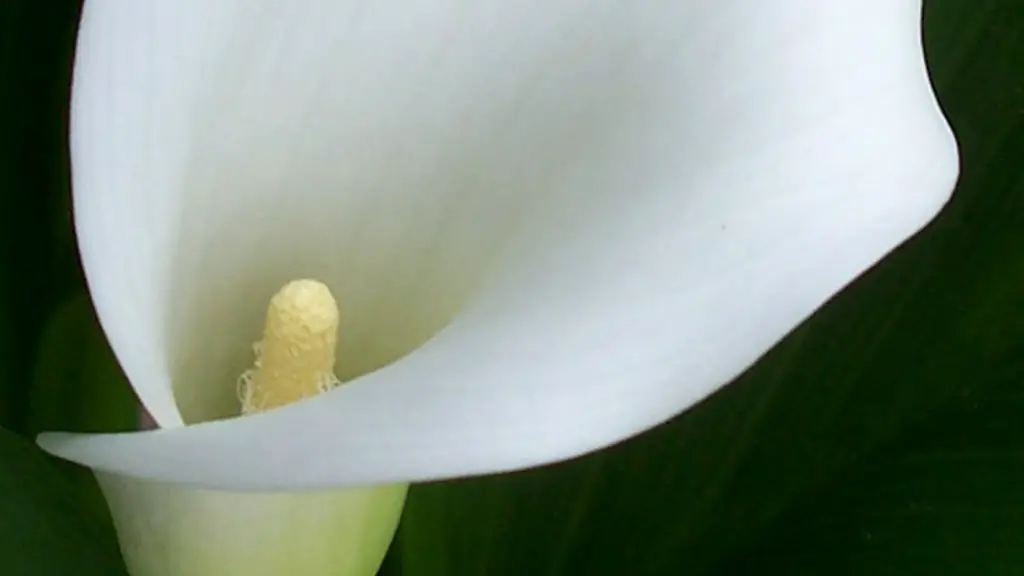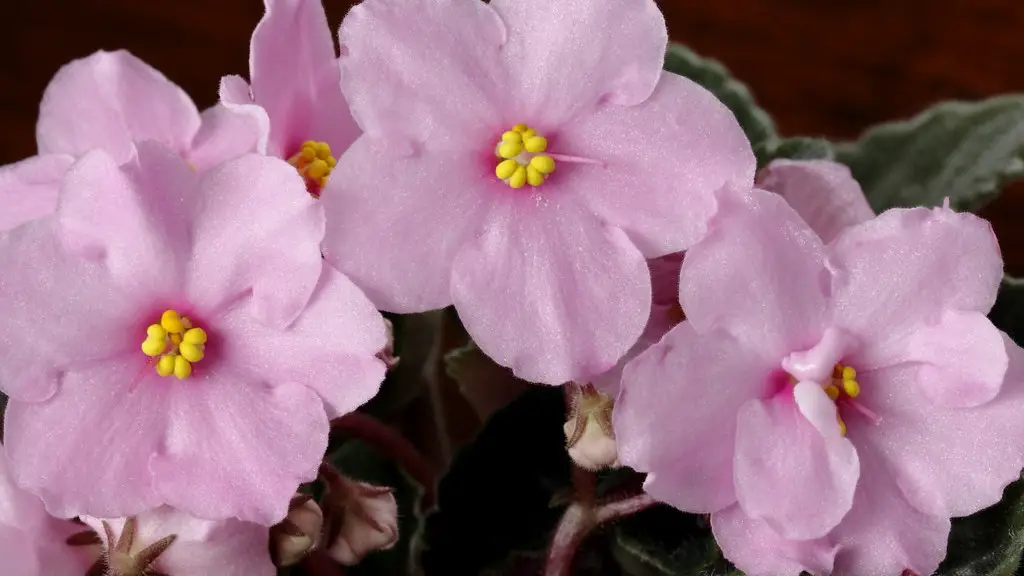There are several possible reasons why your African violets are not blooming. One reason could be that they are not getting enough light. African violets need bright, indirect light in order to bloom. Another possibility is that they are not getting enough water. African violets should be watered about once a week, making sure to not overwater them. Another possibility is that the temperature is too cold for them to bloom. African violets need to be kept in a warm room, around 70 degrees Fahrenheit, in order to bloom. Finally, it could be that your African violets need to be fertilized. Use a fertilizer made specifically for African violets and fertilize about once a month. If you are still having trouble getting your African violets to bloom, you may want to consult a gardening expert.
There are a few reasons why your African violets might not be blooming. One reason could be that they are not getting enough light. African violets need bright, indirect light in order to bloom. Another reason could be that they are not getting enough water. African violets need to be watered regularly, but not too much. Too much water can cause the leaves to turn yellow and the plant to wilt. Finally, African violets need a certain amount of humidity in order to bloom. If the air in your home is too dry, try misting your plants with water a few times a week.
How do I get my African violet to bloom again?
There are a few things you can do to help your African violet bloom again. First, make sure it is getting enough light. It should be in a bright spot, but not in direct sunlight. Second, turn up the humidity around the plant. You can do this by putting a humidifier near it or by placing it on a pebble tray. Third, replenish the essential nutrients that the plant needs. This can be done by fertilizing it with a African violet fertilizer. Fourth, keep the temperature around the plant pleasant. It should be between 65 and 75 degrees Fahrenheit. Fifth, choose the right soil for the plant. African violets need a well-draining soil that is high in organic matter. Sixth, protect the plant from pests and disease. This can be done by using a pesticide and fungicide. Seventh, constrict the roots of the plant. This can be done by repotting it into a smaller pot. By following these tips, you can help your African violet bloom again.
A wicking system is a great way to make sure your African violets are never over watered. With this system, water is drawn up from a reservoir into the soil, so the plant can never be over watered.
What time of year do African violets bloom
If you want your African violets to bloom year-round, you need to provide the correct conditions. African violets need bright, indirect light and a temperature around 70 degrees Fahrenheit to bloom. They also need to be kept moist, but not wet. Allow the soil to dry out a bit between watering.
Epsom salts are a great way to give your plants the magnesium and sulfur they need to produce beautiful blooms and healthy foliage. Just mix one and a half teaspoons of Epsom salts in a quart of tepid water and swirl to dissolve. Water your African violets (below the leaves) with this solution once a month.
Can you use Miracle Grow on African violets?
African violets are beautiful plants that add a touch of color and elegance to any home. They are relatively easy to care for, but there are a few things to keep in mind in order to ensure that they thrive. First, African violets need well-drained, slightly acidic soil in order to grow their best. Miracle-Gro Indoor Potting Mix is a great option because it is specifically designed to provide indoor plants with the ideal growing environment. Secondly, African violets require moderate amounts of water. Be sure to water them regularly, but do not overdo it, as this can lead to root rot. Lastly, African violets need bright, indirect light in order to bloom. If you can provide them with these basic needs, you will be rewarded with beautiful, healthy plants that will add a touch of class to your home.
African violets are best suited for a location that receives bright, indirect light. A site near an east or north window is often a good location. African violets should not be placed in direct sun. If a suitable window isn’t available, African violets can be placed under a fluorescent light fixture containing two 40-watt fluorescent tubes.
Should African violets be watered from the top or bottom?
The African Violet is a beautiful plant that is native to Africa. The roots of the African Violet need aeration, so keeping them moderately moist but never soggy is the key to success. Watering from the bottom so they can soak the water up, over an hour or so, will help to keep water out of the crown of the plant. African Violets like warmer water, around 70 degrees.
Water your African violet carefully to avoid leaf spotting and crown rot. Use room-temperature water and mist the foliage lightly, being careful not to wet the crown of the plant.
What do Overwatered African violets look like
If your African violet’s leaves are droopy, soft, and mushy, it’s a sure sign that the plant is overwatered. Here are some other signs to look for that can confirm that overwatering is the problem:
– Yellow or brown leaves
– Stunted growth
– Mold or mildew on the leaves or stems
If you see any of these signs, it’s important to immediately reduce watering and allow the soil to dry out somewhat before watering again.
You should repot your African violets every one to two years, or when the plant becomes rootbound. Rootbound means that the roots have filled up the container and have started to wrap around the edges. When this happens, the plant can’t absorb enough water and nutrients, which can affect its health and growth.
How often should you feed African violets?
Your African Violet needs fertilizer to stay healthy throughout the year. During the spring and summer, you should fertilize your African Violet once every 14 days. In the fall and winter, you shouldn’t fertilize the plant at all to prevent over-fertilizing.
If you’re looking for the best pots for African violets, look no further than the options below. From self-watering options to ceramic and terracotta pots, there’s sure to be a option that’s perfect for your needs.
What is the best food for African violets
Fertilizer is an essential part of keeping houseplants happy—and that includes your dainty African violet. Look for African violet fertilizer that is: African violet-specific, 100% water-soluble, and urea-free.
If you’re powdery mildew on your African violets isn’t improving, try spraying the plants lightly with a mixture of 1 teaspoon (5 ml) of baking soda in 1 quart (1 L) of water. You can also spray the air around the plant with Lysol or another household disinfectant but be careful not to get too much spray on the leaves.
Can you use hydrogen peroxide on African violets?
This is a great way to prevent algae growth in your potted plants! Simply add one tablespoon of 3% hydrogen peroxide to a gallon of fertilized water, and pour it over the top of your plants. The plant may not soak up the water right away, but eventually the capillary action will take over and bring the water (and hydrogen peroxide) up into the pot.
Coffee grounds are slightly acidic and contain nitrogen, which helps plants grow healthy foliage. Occasionally sprinkling used coffee grounds on top of your African violet potting soil can be good for the plant.
Final Words
There could be several reasons why your African violets are not blooming. One possibility is that they are not getting enough light. African violets need bright, indirect light in order to bloom. Another possibility is that they are not getting enough water. African violets need to be kept moist, but not soggy. The third possibility is that they are not getting enough fertilizer. African violets need to be fertilized monthly with a fertilizer made specifically for African violets. If you are not sure what is causing the problem, you can take a sample of your African violet to your local nursery or garden center for diagnosis.
If you are not fertilizing your African violets, then they will not bloom. African violets need to be fertilized every two to four weeks with a water-soluble fertilizer such as 20-20-20.
